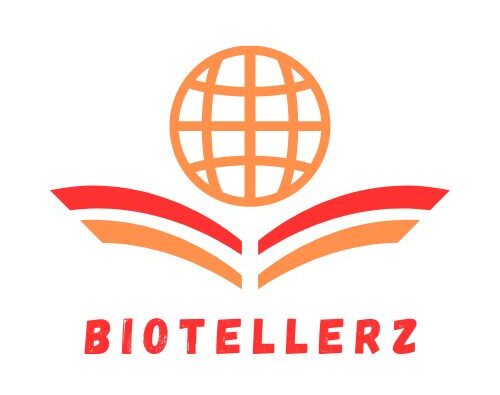English poet, pamphleteer, and historian John Milton was born in London on December 9, 1608; he passed away there on November 8, 1674. He is thought to be the second-most significant English author after William Shakespeare.

John Milton
The work of Milton that is best known is Paradise Lost, the greatest epic poem ever written in English. Along with Paradise Regained and Samson Agonistes, it bolsters Milton’s position as one of the greatest English poets. In his prose works, Milton endorsed the execution of Charles I and the dissolution of the Church of England. From the beginning of the English Civil Wars in 1642 until well after Charles II’s restoration as king in 1660, he promoted a political philosophy that opposed tyranny and state-sanctioned religion in all of his writings. His influence extended throughout the civil wars and the post-war era in addition to the American and French revolutions. He emphasized the importance of conscience freedom, the Bible’s supreme authority as the only source of Christian doctrine, and religious tolerance of heretics in his theological writings. Milton established himself as the voice of the English Commonwealth after 1649 through his administration of the English Commonwealth’s intergovernmental correspondence and his defense of the government against foreign polemics.
Early Education
Richard, the maternal grandfather of Milton, was a devout Roman Catholic who expelled Milton’s poet father John from their home in Oxford shire for reading an English (i.e. e. e. The Bible (Protestant). Milton’s father started a business in London as a legal document scrivener after being exiled and disinherited. Along with being a moneylender, he negotiated with creditors to obtain loans for his clients.
He and his wife, Sara Jeffrey, whose father was a merchant tailor, ensured the childhood survival of three of their children: Anne, the oldest, John, and Christopher. Christopher maintained a friendly relationship with his older brother throughout his life despite becoming a lawyer, a Royalist, and possibly a Roman Catholic. Following the restoration of the Stuart monarchy in 1660, it’s possible that Christopher, among others, stepped in to prevent his brother’s execution.
John Milton Sr. was a composer and musician who supported cultural causes. John was enrolled in St. His son’s formal education at Paul’s School was supplemented, most likely in 1620, by tutors. Milton received private instruction from Scottish Presbyterian Thomas Young, who may have influenced Milton’s political and religious beliefs as they remained in touch over the years.
At St. A classmate named Charles Diodati who later became a confidant for Paul’s Milton made friends with him. John Donne, a poet and St. His school had a good view of St. the Paul’s Cathedral. There, Milton received his education in Latin and Greek. Over time, he also picked up other languages, most notably Italian, which he used to write some sonnets and speak as fluently as a native Italian, according to Florentines he met while traveling abroad in 1638–1639.
Foreign Travel
Milton spent the majority of his time in Italy, primarily in Rome and Florence, during his roughly 15-month journey across the Continent in 1638 with the help of a manservant. Particularly interested in the Florentine academies, Milton made friends with young Italian writers who shared his appreciation of humanism. He never saw his Italian friends again, but he was touched by their admiration and stayed in touch with them after coming back to England.
Another person Milton met in Florence was Galileo, who was essentially under house arrest. Unknown are the specifics of this extraordinary encounter, in which a young Englishman, around the age of 30, was able to communicate with the elderly and blind astronomer. (Milton would go on to identify Galileo as the only living author in Paradise Lost. (While passing through Italy, Milton learned of the death of Charles Diodati, his closest friend from St. This information caused him to return home earlier than he had intended because he learned that there would soon be a civil war in England and that Paul’s School might have been affected by the plague.
When Milton eventually made it back to England, he made his home in London, not far from the area around Bread Street where he was born. The Phillips brothers, John and Edward, were his roommates and were the sons of his sister Anne. He remembered Diodati by writing a Latin elegy called “Epitaphium Damonis” (also referred to as “Damon’s Epitaph”) when he got home.
Early Poetry and Translations
Milton had already shown, in addition to his remarkable skill as a linguist and translator, his extraordinary versatility as a poet by the time he returned to England in 1639. once in St. As a 15-year-old pupil of Paul’s, Milton translated the Hebrew version of Psalm 114, which recounts the Israelites’ deliverance from Egypt. The same psalm was later translated into Greek and paraphrased there.
His translation into English was an iambic pentameter heroic couplet-style poetic paraphrase. He began this kind of work when he was young and continued it into adulthood, concentrating on it the most from 1648 to 1653 while also penning pamphlets that criticisms of the monarchy and the Church of England were expressed. When he was still a young man, Milton also wrote letters in Latin verse.
These letters, which cover a wide range of topics, are referred to as elegies because they are written in elegiac metre, a couplet-based verse style with classical roots that has a first line in dactylic pentameter and a second line in dactylic hexameter. Milton’s first elegy, “Elegia prima ad Carolum Diodatum,” was composed as a letter to Carol Diodati, an Oxford student whom Diodati knew from their time together at Cambridge. before returning to the reedy fens of the Cam, return to the clamor of the rowdy school.
Related Posts
Donald Trump – Best Guide in 2023
